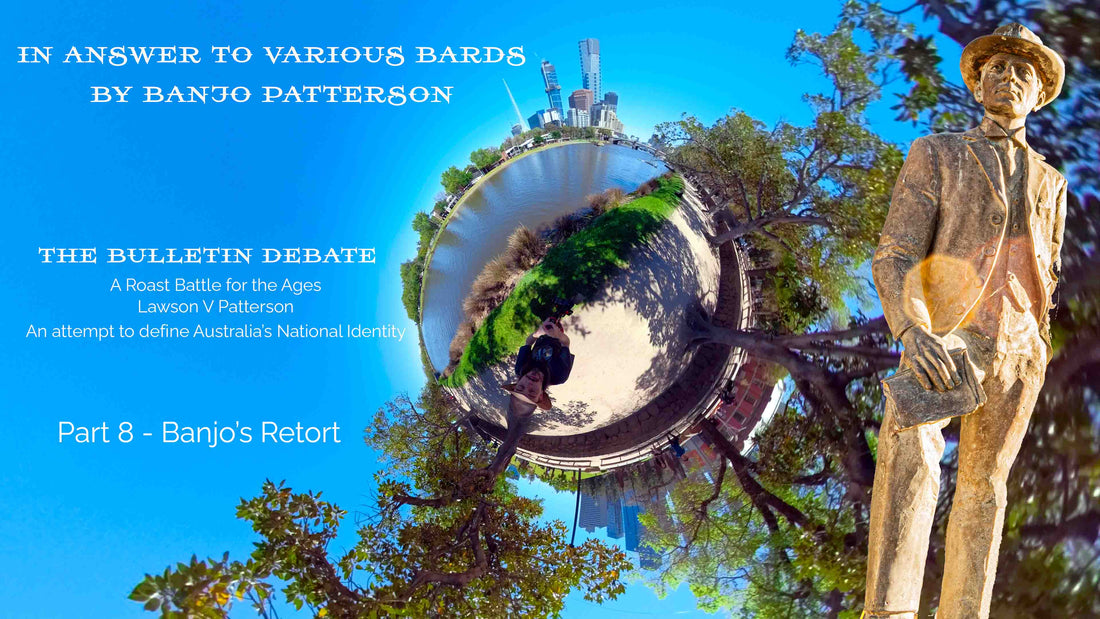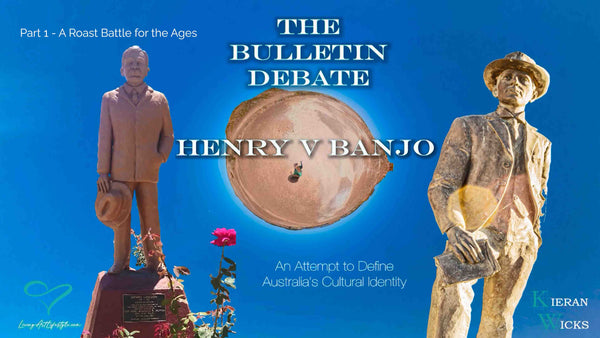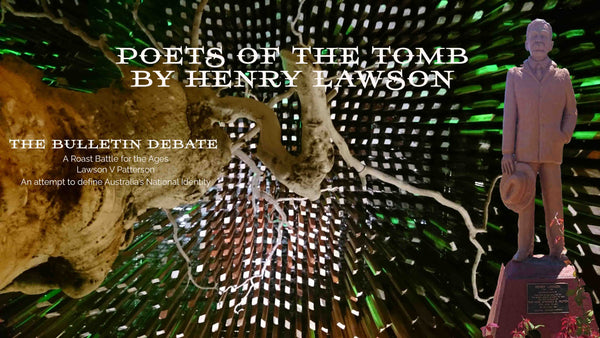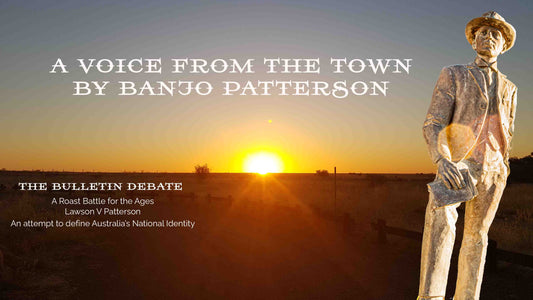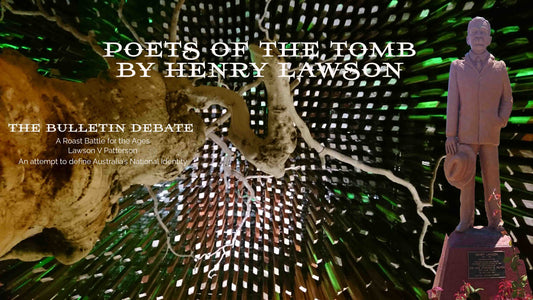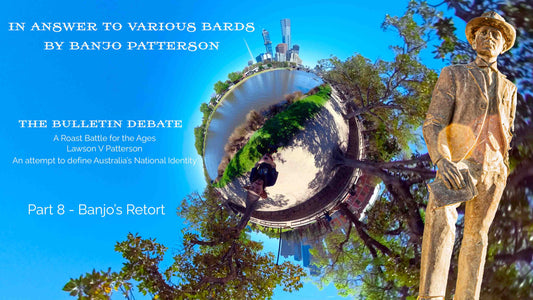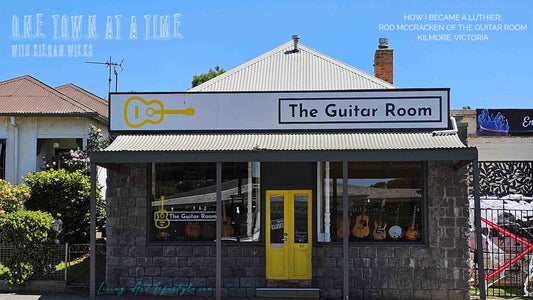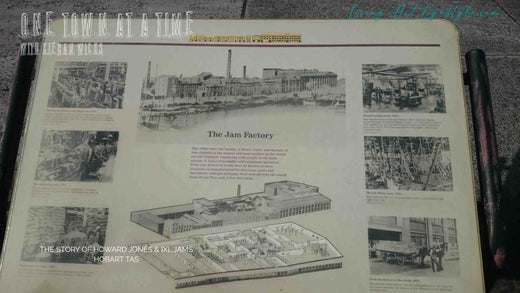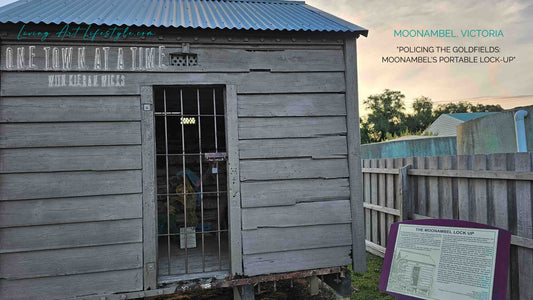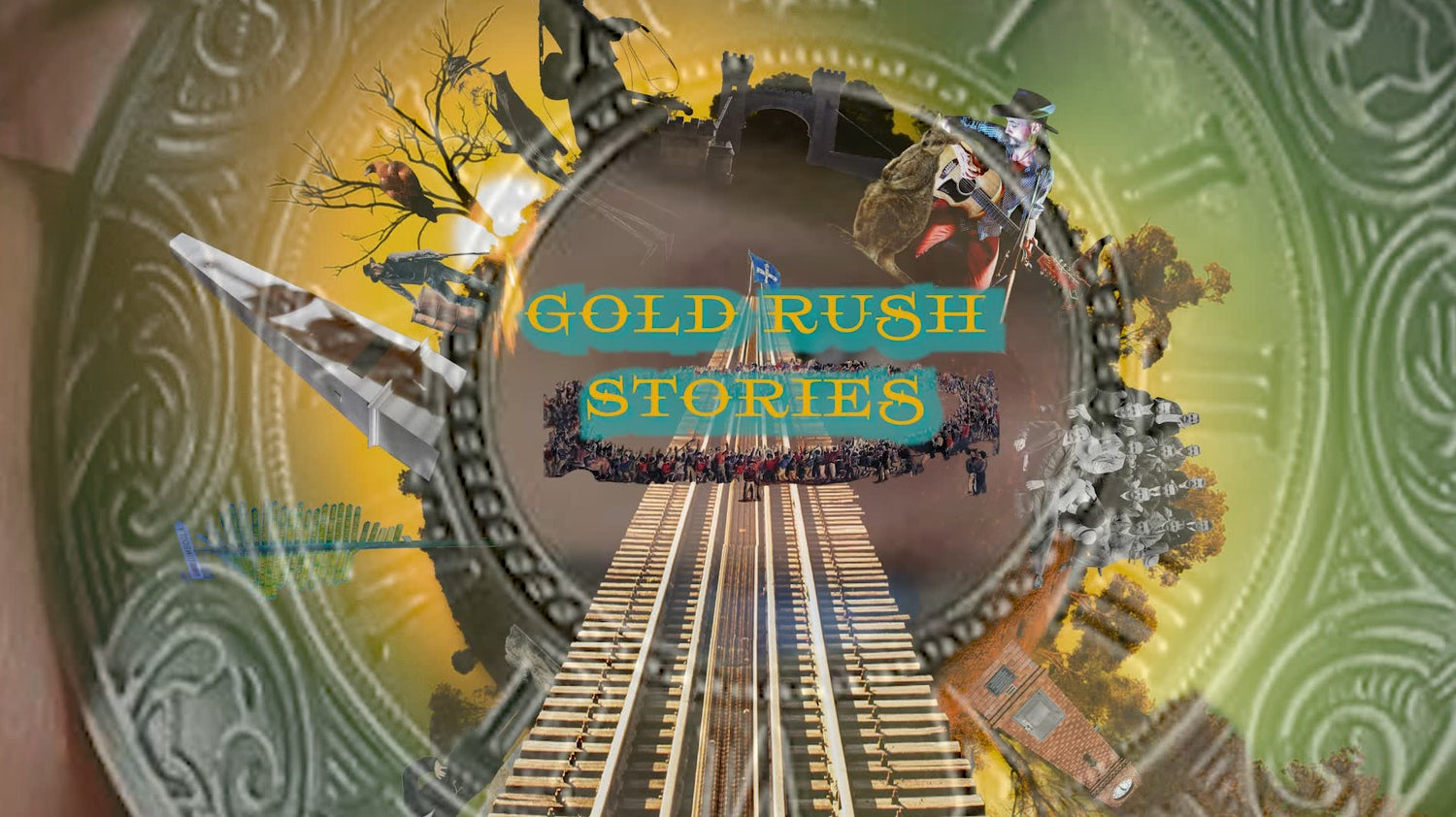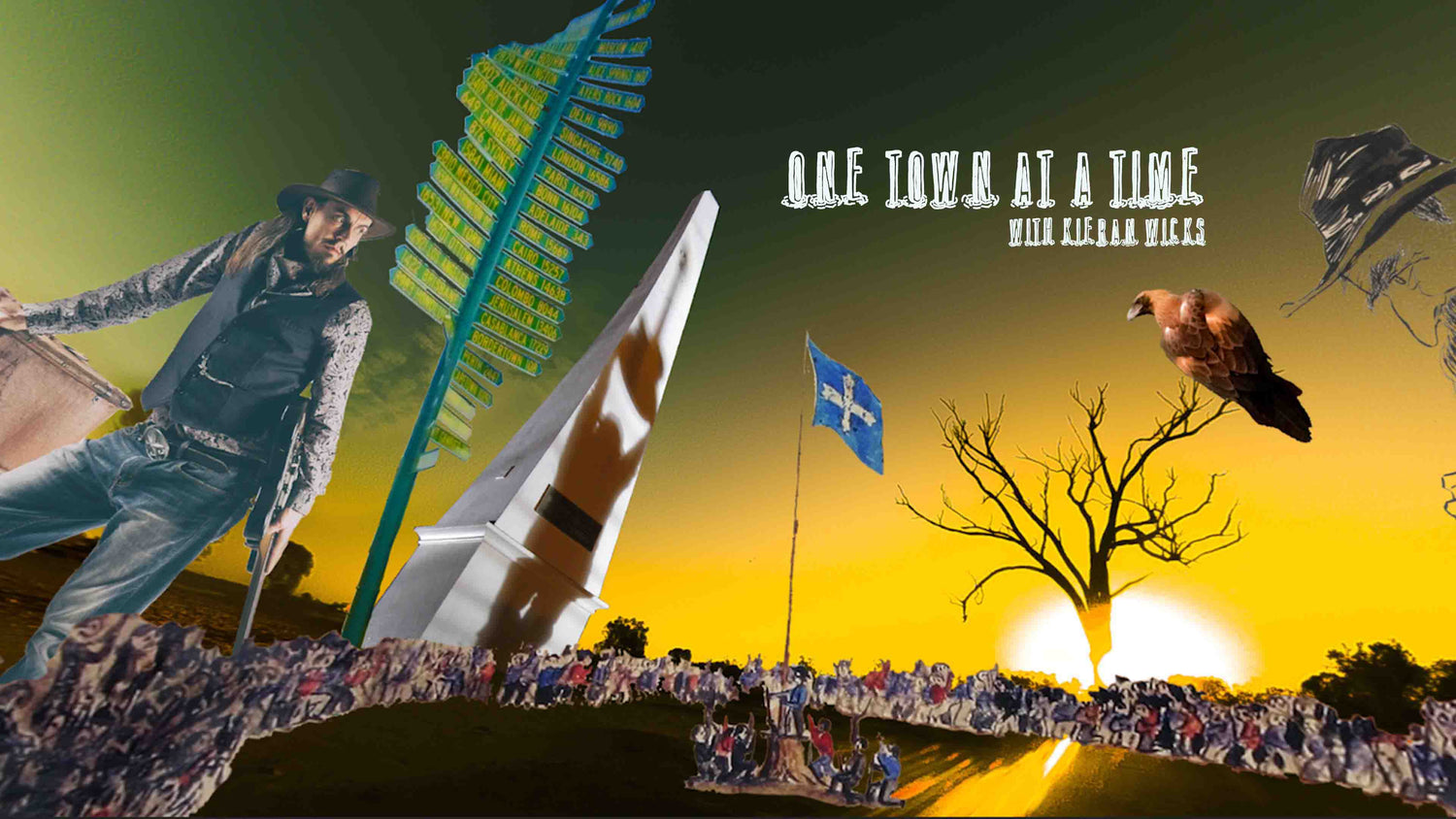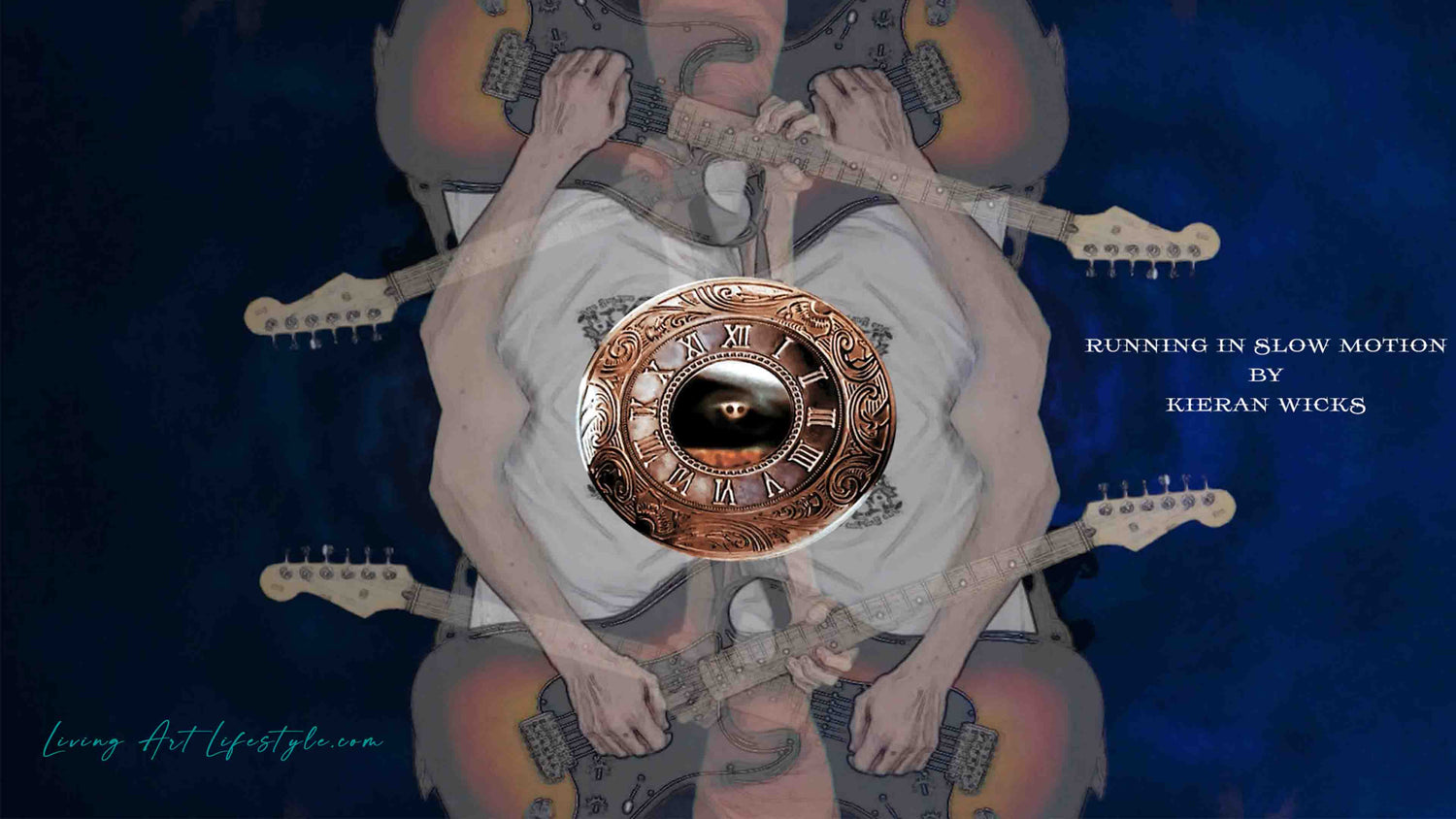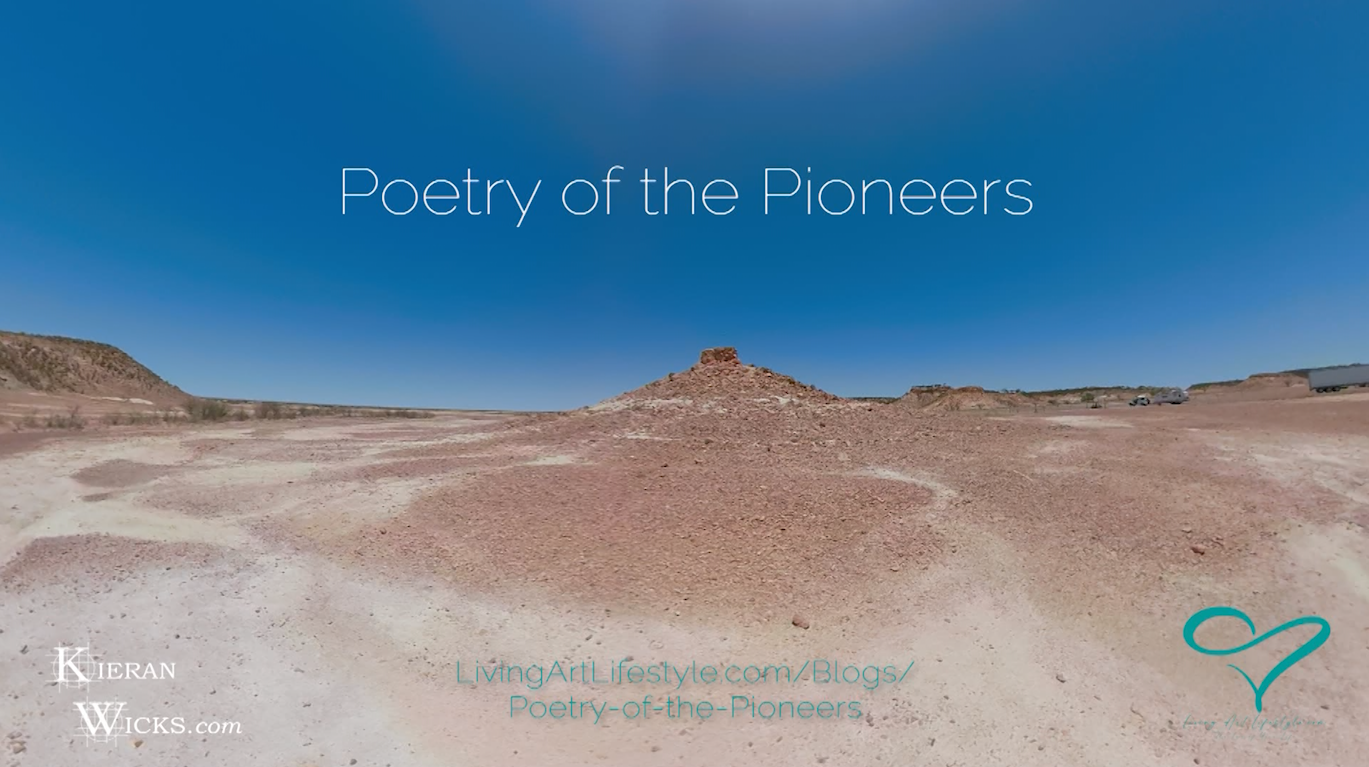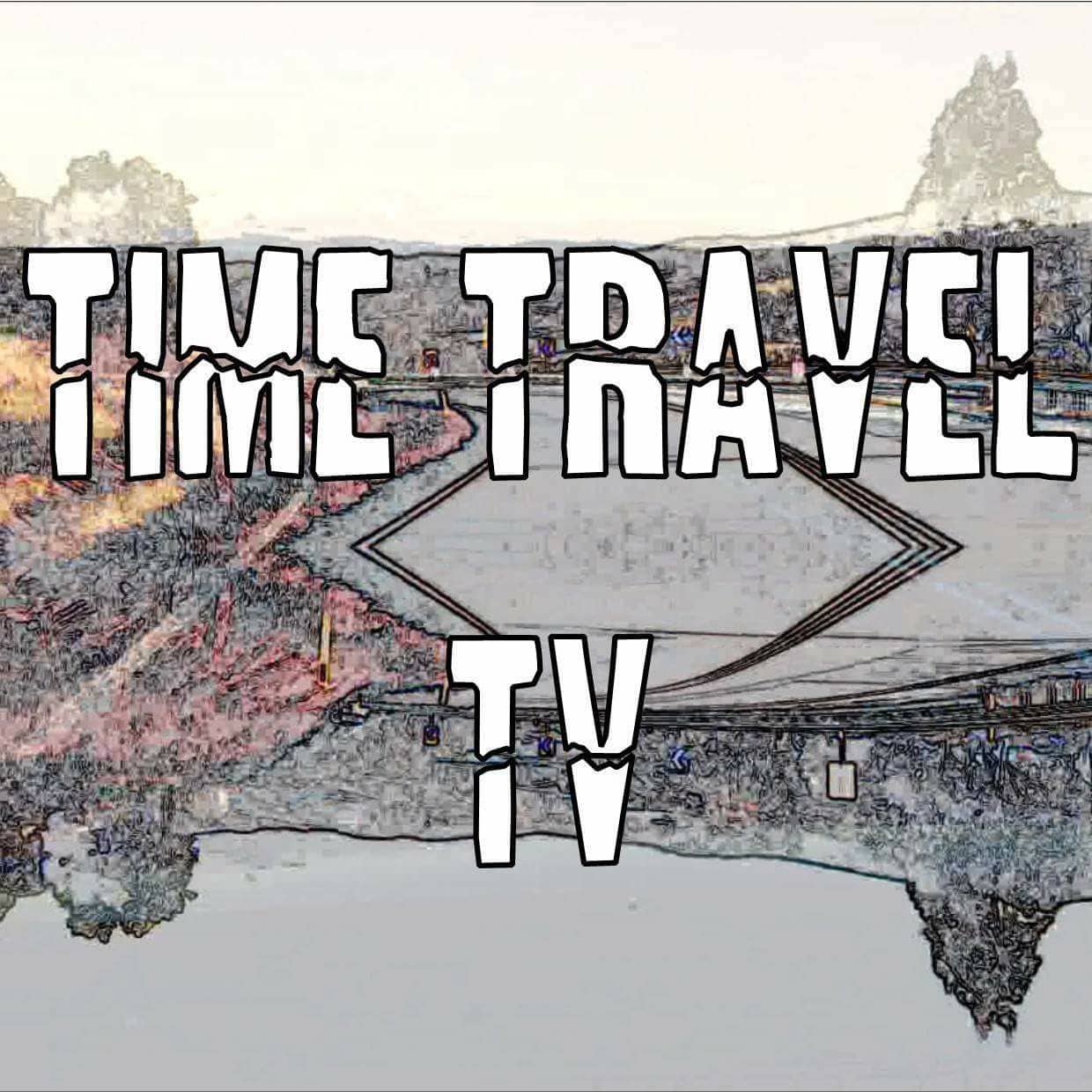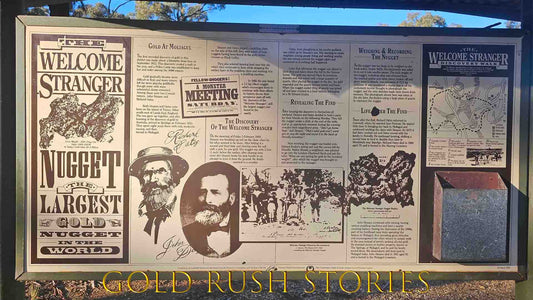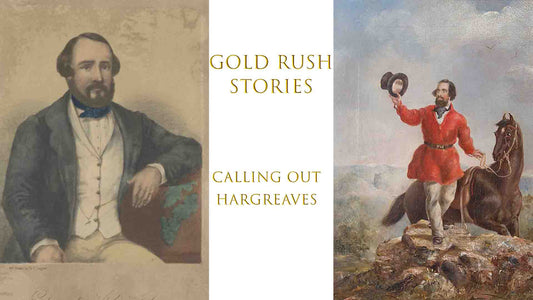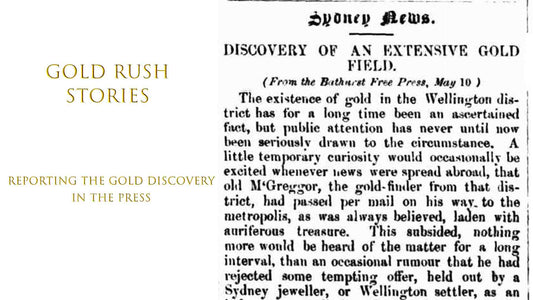After 4 fellow poets attack Banjo across the pages of the Bulletin, it’s easy to see that he may have felt as though he was being attacked on all fronts, maybe even goaded into partaking in the Bulletin Debate, after all it was Lawson’s idea that they should write against one another, and even though Banjo through the first punch with In Defence of the Bush, it was becoming more of a pile on, so Banjo felt inclined to set the record straight, that as he saw it, he was an optimist and that Lawson and Co were mere gloomy pessimists.
Star Tracer - Eco-Friendly Athletic Hoodie
Rather Banjo declared that he idolised and admired the wear with all of Bush Folk and as such thought they should be honoured in verse. There was no blind romanticism about it, choosing rather to focus on the beauty, strength and golden reward of the bushman’s toils rather than the darker shades of life outside the city.
In Answer to Various Bards is a concession speech of sorts, Patterson waving a white flag and declaring he’s out, no hard feelings or bad blood, let’s just agree to disagree and maybe walk the Wallaby together one day before painting the town red at the bars back in the city and swapping notes.
In Answer to Various Bards
Well, I've waited mighty patient while they all came rolling in,
Mister Lawson, Mister Dyson, and the others of their kin,
With their dreadful, dismal stories of the Overlander's camp,
How his fire is always smoky, and his boots are always damp;
And they paint it so terrific it would fill one's soul with gloom --
But you know they're fond of writing about "corpses" and "the tomb".
So, before they curse the bushland, they should let their fancy range,
And take something for their livers, and be cheerful for a change.
Now, for instance, Mr Lawson -- well, of course, we almost cried
At the sorrowful description how his "little 'Arvie" died,
And we lachrymose in silence when "His Father's mate" was slain;
Then he went and killed the father, and we had to weep again.
Ben Duggan and Jack Denver, too, he caused them to expire,
After which he cooked the gander of Jack Dunn, of Nevertire;
And, no doubt, the bush is wretched if you judge it by the groan
Of the sad and soulful poet with a graveyard of his own.
And he spoke in terms prophetic of a revolution's heat,
When the world should hear the clamour of those people in the street;
But the shearer chaps who start it -- why, he rounds on them the blame,
And he calls 'em "agitators who are living on the game".
Bur I "over-write" the bushmen! Well, I own without a doubt
That I always see the hero in the "man from furthest out".
I could never contemplate him through an atmosphere of gloom,
And a bushman never struck me as a subject for "the tomb".
If it ain't all "golden sunshine" where the "wattle branches wave",
Well, it ain't all damp and dismal, and it ain't all "lonely grave".
And, of course, there's no denying that the bushman's life is rough,
But a man can easy stand it if he's built of sterling stuff;
Though it's seldom that the drover gets a bed of eiderdown,
Yet the man who's born a bushman, he gets mighty sick of town,
For he's jotting down the figures, and he's adding up the bills
While his heart is simply aching for a sight of Southern hills.
Then he hears a wool-team passing with a rumble and a lurch,
And, although the work is pressing, yet it brings him off his perch,
For it stirs him like a message from his station friends afar
And he seems to sniff the ranges in the scent of wool and tar;
And it takes him back in fancy, half in laughter, half in tears,
to a sound of other voices and a thought of other years,
When the woolshed rang with bustle from the dawning of the day,
And the shear-blades were a-clicking to the cry of "Wool away!"
Then his face was somewhat browner, and his frame was firmer set --
And he feels his flabby muscles with a feeling of regret.
But the wool-team slowly passes, and his eyes go slowly back
To the dusty little table and the papers in the rack,
And his thoughts go to the terrace where his sickly children squall,
And he thinks there's something healthy in the bush-life after all.
But we'll go no more a-droving in the wind or in the sun,
For out fathers' hearts have failed us, and the droving days are done.
There's a nasty dash of danger where the long-horned bullock wheels,
And we like to live in comfort and to get our reg'lar meals.
For to hang around the township suits us better, you'll agree,
And a job at washing bottles is the job for such as we.
Let us herd into the cities, let us crush and crowd and push
Till we lose the love of roving, and we learn to hate the bush;
And we'll turn our aspirations to a city life and beer,
And we'll slip across to England -- it's a nicer place than here;
For there's not much risk of hardship where all comforts are in store,
And the theatres are in plenty, and the pubs are more and more.
But that ends it, Mr Lawson, and it's time to say good-bye,
So we must agree to differ in all friendship, you and I.
Yes, we'll work our own salvation with the stoutest hearts we may,
And if fortune only favours we will take the road some day,
And go droving down the river 'neath the sunshine and the stars,
And then return to Sydney and vermilionize the bars.
Dark Hydra - Unisex Heavy Cotton Tee

📜 Episode 1: A Roast Battle for the Ages
In this episode, we delve deep into the background of the battle, meet the players and start to understand the circumstances under which it came about. Witness the clash of ideas, the powerful prose, and the cultural impact of these two literary powerhouses.
📜 Episode 2: The Opening Salvo – Borderland By Henry Lawson
A shot across the bows, Borderland displays a contempt and disdain for romanticising life on the land, pointing to the stark realities faced by those that venture inland, far flung from the luxuries of city life, Lawson leaving no doubts as to the persuasion which he prefers.
📜 Episode 3: Game On – In Defense of the Bush
Playfully scornful, cheekily referencing Lawson’s poem’s Faces in the Street, and the Bastards From the Bush. Patterson outright calls Lawson nothing more than a whinger in, In Defence of the Bush.
📜 Episode 4 – The Drovers in Reply ; The Fact of the Matter by Edward Dyson
It wasn’t long before other notable voices started chiming to the Bulletin debate, offering their own two cents, and truth be known, leaping to Lawson’s defence.
📜 Episode 5 – Rebuking Banjo ; The City Bushman by Henry Lawson
The Gloves are off! Lawson insists that Banjo doesn’t know what he is talking about, having never, literally rather than figuratively, walked a mile in ‘their’ shoes.
📜 Episode 6 - Another Contender Enters the Race ; The Overflow of Clancy by HHCC
A parody none the less, the first of two that play on Patterson’s iconic character Clancy of the Overflow. The Overflow of Clancy reads like a first-hand eye-witness account from a contemporary who had ‘dealt’ with Patterson first hand.
📜 Episode 7 - A Pile On ; Banjo of the Overflow by Francis Kenna
“And the bush is very pretty, when you view it from the city” - Would Banjo really swap his city lawyer life for that of Clancy’s?
📜 Episode 8 - Banjo's Retort ; In Answer to Various Bards by Banjo Patterson
After 4 fellow poets attack Banjo across the pages of the Bulletin, it’s easy to see that he may have felt as though he was being attacked on all fronts. it was becoming more of a pile on, so Banjo felt inclined to set the record straight.
📜 Episode 9 - Lawson's Lament ; The Poets of the Tomb by Henry Lawson
By now the debate had devolved into a slinging match. Lawson acquiesces that Banjo’s declaration of optimism is the best outlook in life in this playful lament, embracing and playing on this caricature of doom and gloom with The Poets of the Tomb his last contribution to the Bulletin Debate.
📜 Episode 10 - The Last Word ; A Voice From the Town by Banjo Patterson
Banjo thought the debate was done and dusted, but just when you think you’re out, they pull you back in. Upon returning home after many a year away. Banjo is asking himself, is the grass greener? If he had his time again, would he think and act differently?
The Hydra - Unisex Heavy Cotton Tee

